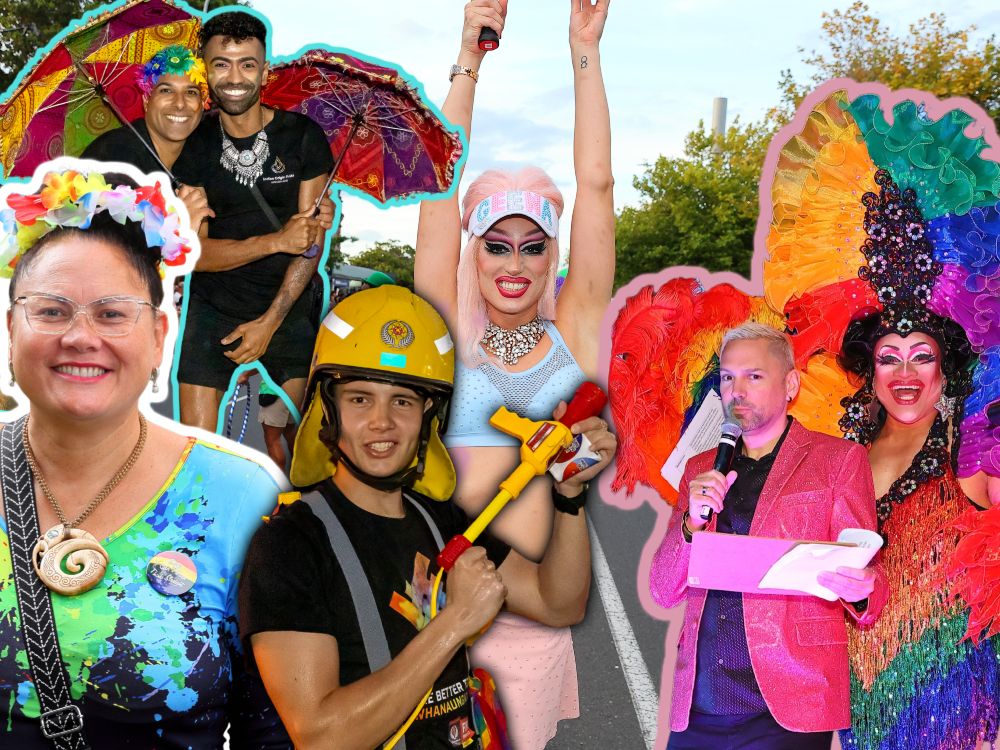Comedian Lily Catastrophe discusses flipping the script on gender-affirming care in Aotearoa.
There’s something quietly radical about a trans woman standing on a stage in Aotearoa and saying, “This is my life.” For comedian and cabaret artist Lily Catastrophe, the act of speaking – and laughing – about her experiences is both art and advocacy. “So many of the conversations around trans folk in Aotearoa happen without any trans people being even remotely involved,” she tells us. “Just being up there and talking about my actual lived experience already says something.”
Lily Catastrophe, the performance persona of Shiyi Redpath, has become one of the most distinctive new voices in New Zealand comedy. Winner of Best New Comedian at the 2024 Wellington Comedy Awards and runner-up in burlesque competition Starlet of New Zealand, she’s part of a generation of queer performers who refuse to separate humour from honesty. Her solo show Bottom Surgery combines comedy, cabaret and storytelling to explore the joys and frustrations of gender-affirming surgery. But as she makes clear, the work is much bigger than one show.
“I didn’t originally think Bottom Surgery was going to be a comedy,” Lily says.
“I thought it would be this serious, dramatic piece. But comedy’s what I know. I wanted audiences to know that I was okay, and that getting surgery, as frustrating and difficult as it was, was unequivocally good. Especially for trans folk – I wanted them to get comfort, not fear.”
The joke lands first, then the conversation starts
Humour, for Lily, is a form of diplomacy. She’s performed her material in spaces that aren’t always overtly trans-friendly, and yet the laughter has a way of clearing the air. “I’ve had really wonderful conversations with people after shows,” she says. “People seem to genuinely appreciate me turning up. Making people laugh first makes it easier to start having the difficult conversations.”
That balance between levity and gravity mirrors what it’s like to navigate the New Zealand healthcare system as a trans person. Gender-affirming healthcare here is still largely decentralised, often dubbed a “postcode lottery”: depending on where you live, wait times stretch into many years. According to data from Counting Ourselves, New Zealand’s survey of trans and non-binary people, 71 percent of respondents who sought gender-affirming care reported facing barriers to access – from long waits to a lack of knowledgeable providers. Lily knows that limbo too well.
“My worst interaction with the system was getting a letter from the Ministry of Health,” she recalls. It inspired a scene in Bottom Surgery. “They couldn’t tell me where I was on the waitlist or how long it would take… but they did say ‘I hadn’t even been on it for that long’. It had already been three years!”
The fundraiser that changed everything
That email, in a strange way, sparked Lily’s creative momentum. “I was so angry I knew I needed to go private,” she says. “So I put on a fundraiser show, and then some news outlets were interested, and suddenly I was in the news talking about being trans. Then I wrote Bottom Surgery because people were curious. It’s all just been one wild ride.”
On stage, on her own terms
Born and raised in Tāmaki Makaurau, Lily describes a sheltered, suburban upbringing. “I mostly stayed inside and played video games,” she says with a laugh. “My parents were anxious and didn’t like me being away from home. But I had really supportive teachers and chill classmates – and I miss the Asian food a lot.”
That grounded sense of normalcy filters through her comedy. Despite often being the only Asian trans woman in the room, she doesn’t dwell on marginalisation as her identity’s defining note. “A lot of the issues I come up against are about what’s wrong with the system, not about how it interacts with me specifically,” she says. “I’m articulate, I’m from here, I feel seen for the most part. But I do look around and notice there aren’t many people like me, and that can be a little weird.”
Her artistic path has also been one of reclaiming the body – something that’s perhaps ironic given burlesque’s visual emphasis. “Honestly, I think stand-up has probably helped me more than burlesque,” she admits. “I used to be self-conscious about my voice. I never did voice training, and that stopped me from performing for a long time. But in stand-up you’re using your voice constantly, so it was like exposure therapy. I’ve gotten more comfortable using it.”
Comedy as comfort and connection
If there’s a thesis to Lily Catastrophe’s art, it’s that comedy can be both comforting and catalytic. She doesn’t approach audiences as students to be lectured to, but as co-conspirators in curiosity. “I like when audiences are cheering and engaged. For cis audiences, I want them to understand that I’m trans and for the most part I’m just living my life. For trans audiences, I want them to feel seen, because trans audiences are particularly underserved in the arts. They want to experience live theatre too!”
That gap between being seen and being served runs through all her reflections on the arts industry. “A big part of support for trans artists looks the same as support for all artists – building a sustainable, well-funded arts sector that pays people properly,” she says. “But also, there need to be spaces for trans folk to perform to other trans folk. Venues should be openly and loudly backing us when they invite us in, so we know it’s safe to be there.”
The bigger picture
Lily Catastrophe’s work isn’t just about one woman’s experience with gender affirmation or one show’s success. It’s about re-centring trans voices in Aotearoa’s cultural and political landscape, where they’ve too often been discussed rather than heard.
“Being on the waitlist feels like your life is literally on pause,” she says. “People might understand that feeling from other surgeries – knowing something could make your life better but having no idea how long it’ll take. It’s not just your body waiting – it’s your future.”



































